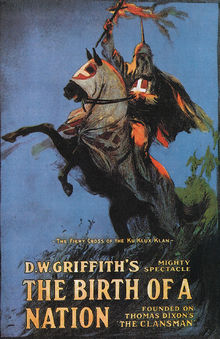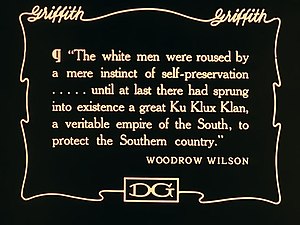I refuse to have my remarks reduced to a simple-minded formula that even the rightwing, reactionary lunatic fringe can understand, and about which they can feel good. The tariff did not lead states to secede and make war on the United States; that nullification bullshit (i.e., states rights) did not lead states to secede and make war on the United States (or, as in the case of at least Florida, to make war on the United States and then secede). Only the remote possibility of a threat to slavery lead states to secded and make war on the United States
and form a confederacy. The Confederate States were formed solely to protect the institution of slavery.
In the era of the Reagan administration, states rights became an acceptable concept again. It was at this time that the witless argument that the southern confederacy had been formed to protect states rights was cobbled together so that conservatives could feel good about Confederate apologetics. It's horseshit. The only right of states which the Confederate States intended to protect was the right to keep slaves.
Even earlier, there was a resurgence of Confederate apologetics, though. Dixon's novel
The Clansman had been popular in the early 20th vcentury, and Griggith's motion picture,
The Birth of a Nation, had been even more widely popular. A defrocked minister in Georgia named Simmons re-established the Ku Klux Klan in 1915 after the furor over the lynching of a Jewish factory owner, Leo Frank, in Atlanta. He plainly relied upon the popularity of Griffith's film for much of his symbolism. Here's a movie poster from that motion picture:

It was a silent movie, and here's one of the text stills from the movie:

I don't know if the attribution to Wilson is accurate, but it hardly matters--i have no doubt people thought it was. There is ample evidence that Wilson was a racist, so i'm good with that.
In the late 19th century there had been a social movement known as the Lily Whites. The name came from an anti-black wing of the Republican Party,
the Lily-White Movement. They were anti-black (obviously what is meant by the "white" portion of the name) and they were anti-immigrant and anti-Catholic (two ideas intertwined in Protestant socieity at the time--and hence the "lily" portion of the name, the lily symbolizing Protestants). Their appeal was national--witness the virulent anti-Irish (i.e., anti-immigrant) and anti-Catholic sentiments of Thomas Nast, who is still treated as some kind of crusading hero in the American historical myth. This is just one of his notorious anti-Catholic political cartoons:

Note that the alligators are bishops, and their snapping jaws are the mitres the bishops wear.
The author of this thread is the only one who can say for certain, but i suspect that this thread arises out of a long-standing argument here against Confederate apologetics which became lively a few years ago when there was a thread saying that the Confederate battle flag is a racist symbol. As it was used by regiments of the Confederate States army, and the sole purpose for the formation of the Confederacy was to protect the institution of slavery, i agree.
The bullshit is getting deep here, but it's not those who accuse the Confederatcy of being about slavery who are spreading it.